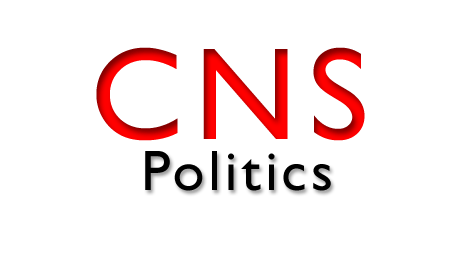COLLEGE PARK — State leaders joined activists in Annapolis Tuesday morning in opposition to the U.S. Supreme Court’s 2010 Citizens United ruling, which created fewer limits for corporation contributions to political campaigns.
State Senator Jamie Raskin, D-Montgomery, said he will be sponsoring a bill that would give more rights to shareholders in corporations’ political donations.
The bill would require corporations to disclose their political expenditures to shareholders, who would also have a say in those donations, Raskin said.
The decision, Citizens United v. Federal Election Commission, was handed down in January 2010.
“The people in Maryland remain extremely concerned about the Citizens United,” said Raskin, who is also a constitutional law professor at American University. “People have every reason to be alarmed.”
Raskin said the bill, which he plans to introduce Wednesday, is based on a system in the United Kingdom that has more transparency to shareholders than the current American system.
State Senator Paul Pinsky, D-Prince George’s, this session will sponsor a “Democracy Amendment” resolution, along with Delegate Sheila Hixson, D-Montgomery. If it passes it will show Maryland’s support for a state-led constitutional convention to reverse the Citizens United decision.
Last year, Raskin sponsored the Democracy Amendment resolution, which didn’t pass, but, he said, he still supports a constitutional amendment to reverse Citizens United.
“There’s not a level playing field,” Pinsky said, because corporations can more easily influence politics by donating thousands of dollars, compared to an individual’s more modest contribution.
In 2012, a majority of the Maryland General Assembly sent a formal letter to Congress asking for a constitutional amendment to reverse Citizens United. If the Democracy Amendment resolution passes this session, Maryland will become the fourth state, behind Vermont, California and Illinois to call for such a convention.
“This is not going to happen overnight,” Pinsky said. “If Maryland can be fourth and build that momentum, I think that’s good…it’s an educational process.”
Once 34 states agree to a convention, then states themselves can amend the Constitution — without Washington’s Congress. But such a constitutional convention has never happened in U.S. history.
Often such a call for action from the states can catch the eye of Congress, said Charlie Cooper, president of all-volunteer group Get Money Out-Maryland, which is working to reverse Citizens United.
“Nearly unfettered injections of dark money into political campaigns drown out the voices of everyday Americans,” said U.S. Sen. Ben Cardin, D-Maryland, who is co-sponsoring a Congressional bill that would require federal disclosure for certain organizations’ donations greater than $10,000.
And though, Pinsky said, more than 60 people showed up to oppose Citizens United Tuesday on a snowy Annapolis morning, there will be opposition.
State Senate Minority Leader J.B. Jennings, R-Baltimore and Harford, said he thinks he will oppose any measure that would reverse Citizens United or enact stricter regulations on corporations’ political donations.
“Campaign donations are heavily regulated, scrutinized,” Jennings said. “I don’t have any problem with it at this point. I think the State Board of Elections does a good job at policing that already.”
House Minority Whip Kathy Szeliga, R-Baltimore and Harford, said she thinks these measures are unfairly focused on corporations, while labor unions’ large donations, often to Democratic campaigns, are largely ignored.
But for Pinsky, it’s about having a fair and transparent democracy, and bringing it back to a time when people decided politics.
“How do we have a society where people’s voices count and it’s not about money?” Pinsky said. “Maybe the more we have the conversation it will make more people attuned and educated, and maybe it will switch the conversation.”

